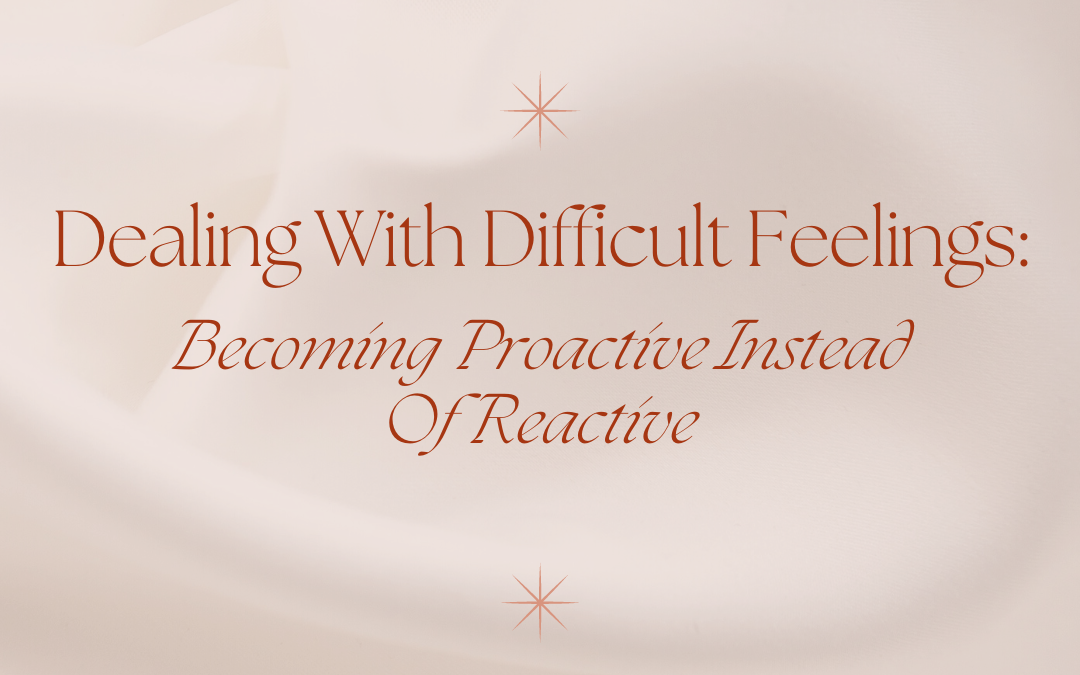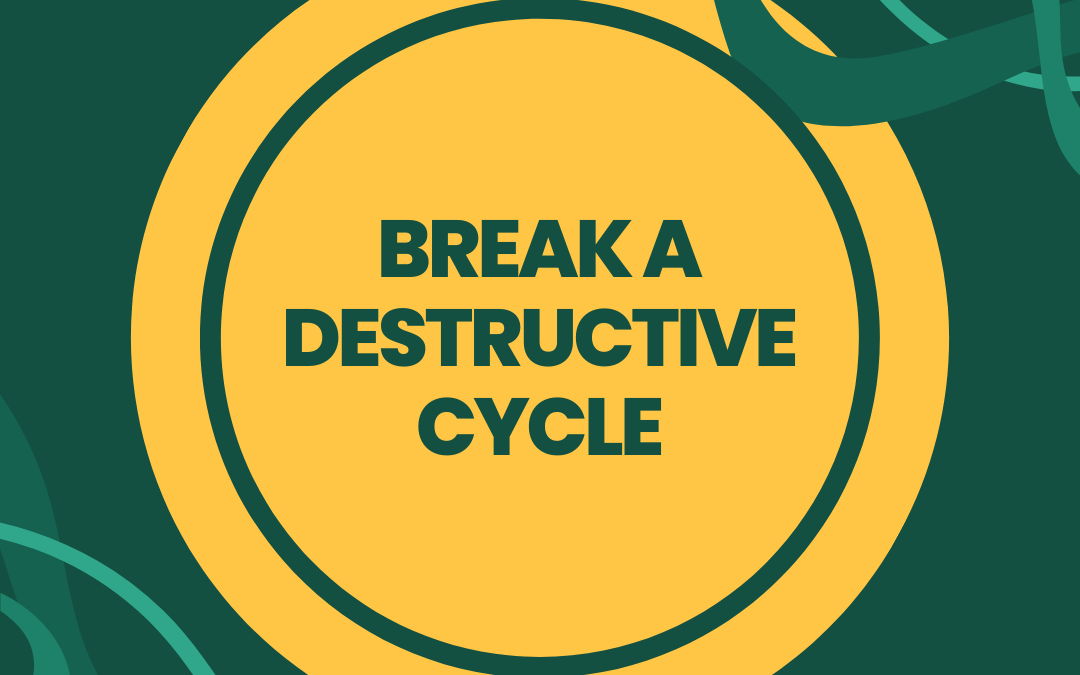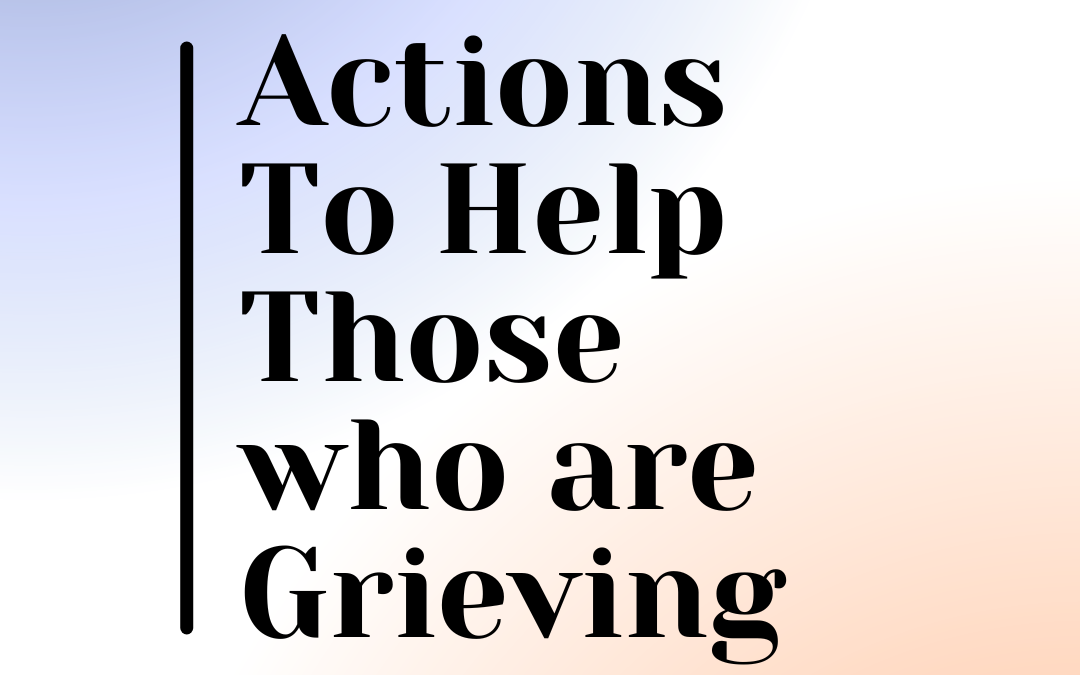When you spend your life reacting to the events that affect you, you take away your own power to control what is happening and how you react to those events. Being proactive, rather than reactive, means your attitude focuses on what you can do, rather than on reacting to things that are happening to you.
When you focus on being proactive in how you handle your difficult emotions, you pay attention to how you can take action in your life, rather than blaming others or trying to ignore the cause of your strong feelings.
This will help you develop the necessary skills to effectively handling your difficult feelings, rather than ignoring or numbing them, while also learning the valuable life lessons these situations can teach you. You can learn to be more proactive in your life, but it involves making a shift in your mindset about difficult feelings as well as practicing new life skills and making choices in difficult situations.
Below are some suggested strategies that, when practiced regularly, can help you become more proactive in your thinking and in the way you handle and learn from your difficult emotions. There are many ways to use each of these strategies, and not all may be appropriate for you and your situation. Select the one or ones that make the most sense for you and practice it regularly to help you develop the skills necessary for being proactive in your own life.
QUESTIONS TO REFLECT ON:

Stay Focused on Resolution
When you are experiencing difficult feelings about a situation, it is vital that you stay focused on possible solutions or resolutions rather than your feelings. Shift your mindset to focus on possible solutions rather than your feelings about those solutions, which can help you release some of the difficult feelings you have in a situation.
The emotions themselves can cloud your judgment, preventing you from thinking clearly, which can make your situation even harder to deal with.
Learn to focus on those things which you can actually control as well as what you are learning about yourself and others from the situation. This will help you face future obstacles as well as teach you important life skills about the role your emotions play in your decision-making and other skills.
Difficult emotions should be processed and handled, but in the midst of a problem is not the time. Practice being proactive by focusing on the solutions that you can control, and the emotions will likely resolve when the situation improves.
Rely on Yourself
Learning to rely on yourself, instead of others, to solve your problems and to handle your difficult feelings, is an important step in your personal development. Learning to be self-reliant means you learn to accept your emotions, deal with them appropriately, and apply the lessons learned in your life in ways that will benefit you in the future. No one else can do this for you, and the faster you learn and accept this, the better off you will be.
When life presents you with challenges, you must make the choice to tackle it yourself. While you may need assistance and support along the way, it is your own determination and effort that will get you where you want to be in the future. This mindset means that you not only take ownership of your own strengths and goals but also your problems and areas of weakness.
Remember That Emotions Are Impermanent
While it can be difficult to remember in the midst of a challenge, all of your difficult emotions will eventually fade, and this can help you when times are hard. Being proactive means, you accept those emotions when they arise, paying attention to them, but giving them the space, they need to disappear just as they appeared.
Ask yourself what you are feeling, what you need to move past your emotions, and what support you might need to weather this brief storm. This can help you feel more in control of yourself and the situation, giving you the focus and attention, you need to be more proactive about solutions and moving forward.
Focus On Being Realistic
When you take a proactive approach to dealing with your emotions, you set goals that are realistic and attainable for you, which gives you the ability to act instead of just dreaming about a better outcome.
Identify your ultimate goal for the situation, then set smaller, benchmarks that will help you attain this outcome. These realistic goals contribute to your overall progress toward your dream of a healthier, happier life, and they provide you with measurable outcomes that you can achieve over time.
Setting lofty or unattainable goals is just another way of avoiding your feelings. This can be harmful to your overall happiness in the long term, stalling your progress in many areas of your life.
Be Honest With Yourself and Others
When you want to be proactive about the challenges you may be facing, it is essential that you have a clear understanding of what is happening, how your emotions are contributing to the situation, and what you need to work on in order to experience a successful resolution. Be honest in your self-assessment of your strengths and weaknesses and use this as an opportunity to learn and grow.
If you are not honest with others or yourself about the cause of your difficult emotions, you will find it difficult to make progress toward a happier, healthier future.
Be An Active Participant
Whatever is happening in your life to cause your difficult feelings, you must be an active participant in finding resolution and moving forward.
You must accept the consequences for all your choices, and you must never assume that things will just work out by themselves.
Surround Yourself with The Right People
Make sure that the people in your life who are helping you to learn to accept and express your difficult feelings are also interested in those same goals. You are more likely to learn these new skills when you have others in your life who are also proficient at or learning these same life skills.
Negative people or those who are experts at avoiding their emotions will not make good role models or help you achieve your goals.
Watch Your Language
When working toward a more proactive mindset, it is important to also what the language you use to talk to yourself and others about your difficult emotions.
Your words say a lot about what you believe to be possible and changing how you talk about your feelings has the power to alter how you are actually feeling. Here are some examples.
Instead of focusing on “Why can’t I….” do or have something, instead reframe the conversation to be about “How can I….” accomplish your goal.
“I want to….” should be the focus on your goal setting and work, rather than worrying over what you “should” or “deserve” to have.
When things are hard, and you keep reverting back to old behaviors, instead of focusing on why you can’t stop doing what you are doing, instead reframe your words to be about what you would rather be doing instead.
Focus on how you can change the situation instead of just accepting that is how it is.
Instead of making excuses for not having enough time or being too busy, focus on how you can make changes that will give you more time to do what is important to you.
Reactive people focus on why others cannot change, whereas proactive people accept others for who they are and instead focus on meeting their own needs.
QUESTIONS TO REFLECT ON:
Thinking
- Are you actively thinking about understanding difficult feelings?
- Are you thinking about all the the things that help you Be proactive about these feelings?
- Are you thinking about how you can further develop how to be proactive about your difficult feelings?
Talk – New Language
- Are you actively expressing these difficult feelings in a proactive way?
- Do you speak of all the good and positive things that make you feel good and counter these feelings in a proactive way?
- Are you continuously telling yourself and reminding yourself to accept these difficult feelings and counter it?
Behaviour
- Do you accept your emotions and own up to them fully?
- Do you try and focus on positive behaviours that help you be proactive about your difficult feelings?
- Do you continuously learn more about how to accept and counter difficult feelings?
Relationships & Contribution
- Do you try and accept and understand your difficult feelings to be able to express them in a healthy way?
- Are you willing to make sure that you always try to accept your difficult feelings to improve your relationships?










